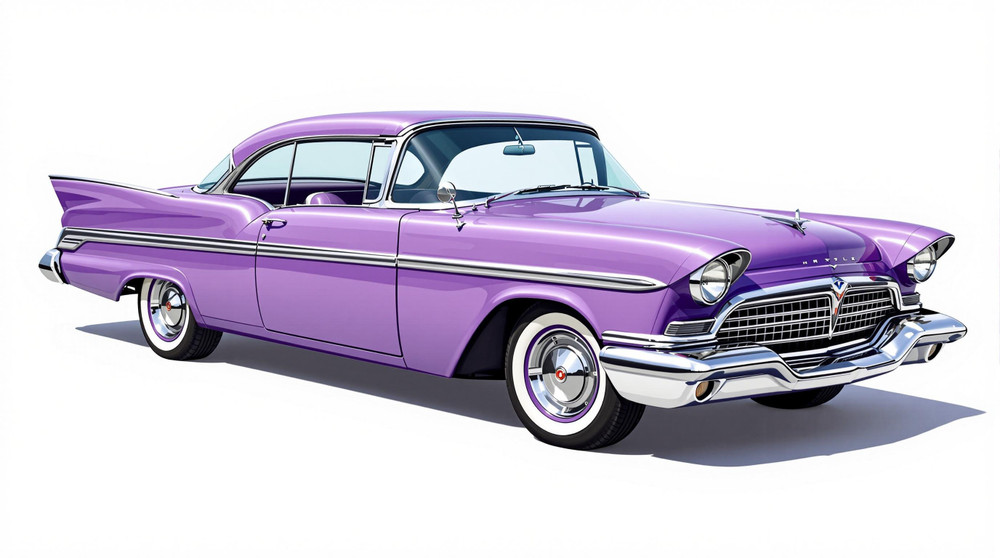Image of 1957 Chrysler 300, Note: These illustrations use artistic license and may differ from actual historical models.
Performance Metrics
Fundamental Metrics
Emotional Appeal
MMP Rating
| Engine Specifications | |
|---|---|
| Engine: | 392 Hemi V8 |
| Displacement: | 392 cubic inches (6.4 Liters) |
| Horsepower: | 375 HP |
| Torque: | 420 lb-ft |
| Compression Ratio: | 9.25:1 |
| Ignition System: | Dual Point Distributor |
| Cooling System: | Liquid Cooled |
| Performance Specifications | |
| 0-60 Time: | 7.5 seconds |
| 1/4 Mile Time: | 15.8 seconds |
| Top Speed: | 145 mph |
| Transmission and Drive | |
| Drive Type: | Rear Wheel Drive |
| Transmission Type: | 3-speed TorqueFlite automatic or 3-speed manual |
| Fuel and Efficiency | |
| Fuel System Type: | Dual 4-Barrel Carburetors |
| MPG: | Estimated 10-12 MPG |
| Dimensions and Brakes | |
| Brakes: | Drum Brakes |
| Wheelbase: | 126 inches |
| Weight: | 4,300 lbs |
Note: Specifications for classic cars are given to the best of our ability, considering the limited and variant data available.
Unveiling the Powerhouse: The 1957 Chrysler 300
The 1957 Chrysler 300 is not just a car; it's a statement of power and luxury from an era where automobiles were a symbol of American prosperity. Born from the illustrious Chrysler Corporation, this vehicle emerged as a titan of performance and style, carving its niche in the annals of automotive history. Known for its robust engine and opulent design, the '57 model was a continuation of the letter series, with the "C" denoting its place in the sequence. It stood as a beacon of innovation during a time when America was on the cusp of a cultural revolution.
Design and Innovation
The exterior of the 1957 Chrysler 300 boasted a bold grille and long, sleek lines that exuded speed even at a standstill. The tail fins, a hallmark of the era's design ethos, were not just for show; they hinted at the aerodynamic attention given to this luxury sport coupe. Inside, passengers were cradled in sumptuous leather seats, surrounded by high-quality materials that spoke to Chrysler's commitment to craftsmanship. The dashboard was an array of chrome and gauges, offering drivers both information and allure.
Technologically, the '57 model featured innovations like push-button TorqueFlite automatic transmission and power steering, which were advanced for its time. Color options ranged from elegant whites to deep blues, with popular choices often reflecting the vibrant personality of their owners. While several body styles were available, it was the two-door hardtop that became synonymous with the 300's iconic image.
Historical Significance
The 1957 Chrysler 300 was more than just another luxury car; it was an engineering marvel that pushed boundaries. Its powerful 392 Hemi V8 engine set it apart from competitors, making it one of the fastest and most desirable cars of its day. This vehicle didn't just follow trends—it set them, influencing automotive design with its combination of performance and elegance.
Performance and Handling
Underneath its hood lay a beast capable of generating up to 375 horsepower, propelling it to top speeds that left contemporaries in the dust. Acceleration from 0-60 mph was achieved briskly for such a substantial vehicle, and drivers often reveled in the throaty roar of the dual exhausts. On winding roads or over uneven surfaces, the Chrysler 300 maintained composure, delivering a driving experience that was both exhilarating and refined.
Ownership Experience
The '57 Chrysler 300 found its place among various enthusiasts—some used it as a daily driver while others reserved it for car shows or even racing events. Maintenance could be demanding due to its sophisticated mechanics and rare parts but owning such an automobile came with prestige. Reliability was typical for its time; however, those who took proper care found themselves behind the wheel of an enduring classic.
Fun Facts
This automotive legend has seen its share of limelight—from being owned by celebrities to setting speed records at Daytona Beach. Despite criticisms about fuel consumption or size, it remained an object of desire for many. Its appearances in historical events only added to its storied past.
Collector's Information
Today, finding a 1957 Chrysler 300 can be as challenging as it is rewarding. With production numbers estimated around 1,100 units for this year's model, rarity adds to its allure among collectors. The value range can vary greatly depending on condition and originality but expect figures northward of six digits for well-preserved examples—reflecting an appreciation in value over time.
Conclusion
The 1957 Chrysler 300 remains an emblematic figure in American automotive culture—a testament to innovation and luxury during an age where cars were more than mere transportation; they were aspirational symbols. Its legacy continues to captivate enthusiasts and collectors alike, ensuring that this classic powerhouse will be revered for generations to come.
1957 Chrysler 300 Catalog of Parts
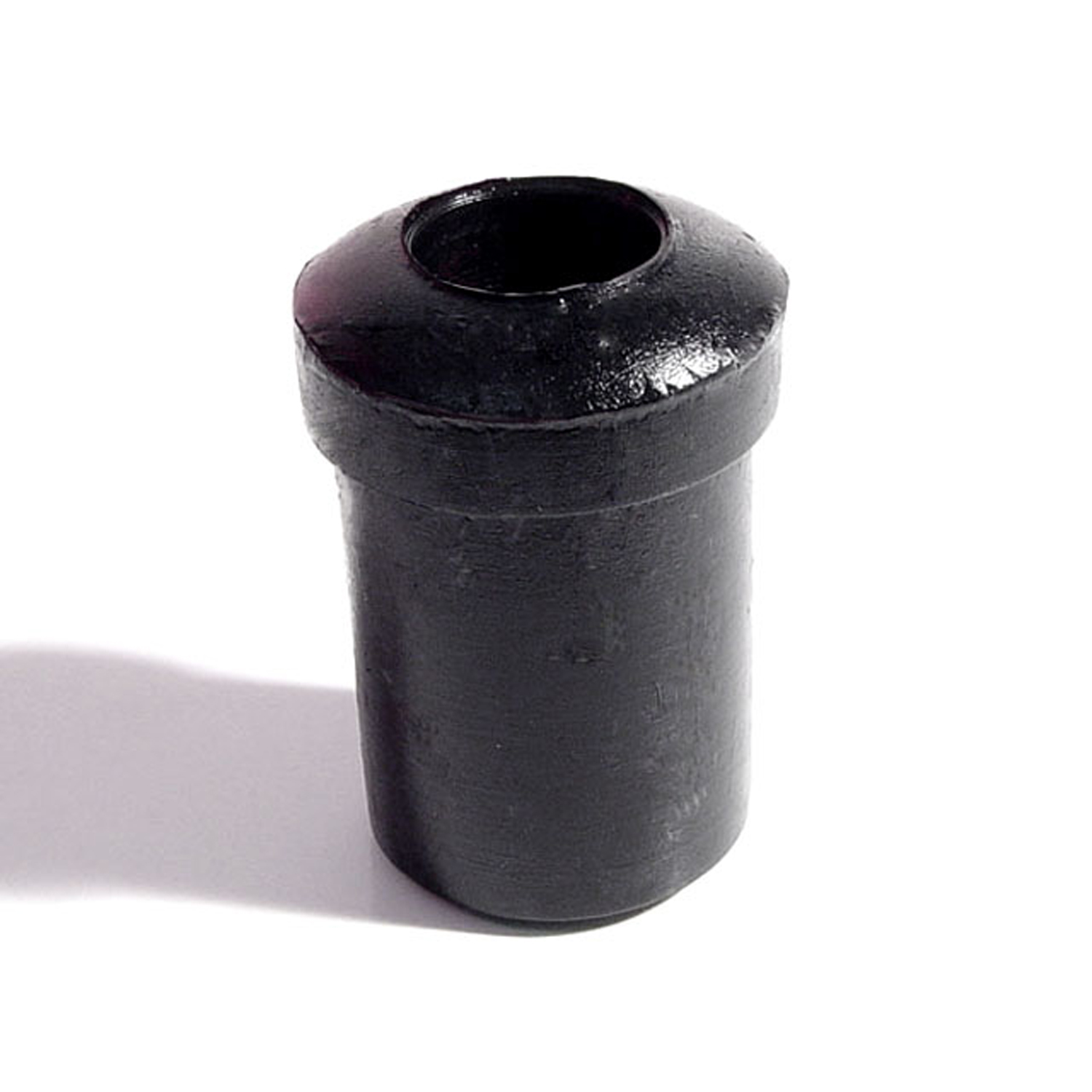 1957 Chrysler 300 Spring and Shackle Bushing. 1" bottom O.D-BN 20Spring and Shackle Bushing. 1" bottom O.D. X 1-5/8" high, with 9/16" I.D. Each
1957 Chrysler 300 Spring and Shackle Bushing. 1" bottom O.D-BN 20Spring and Shackle Bushing. 1" bottom O.D. X 1-5/8" high, with 9/16" I.D. Each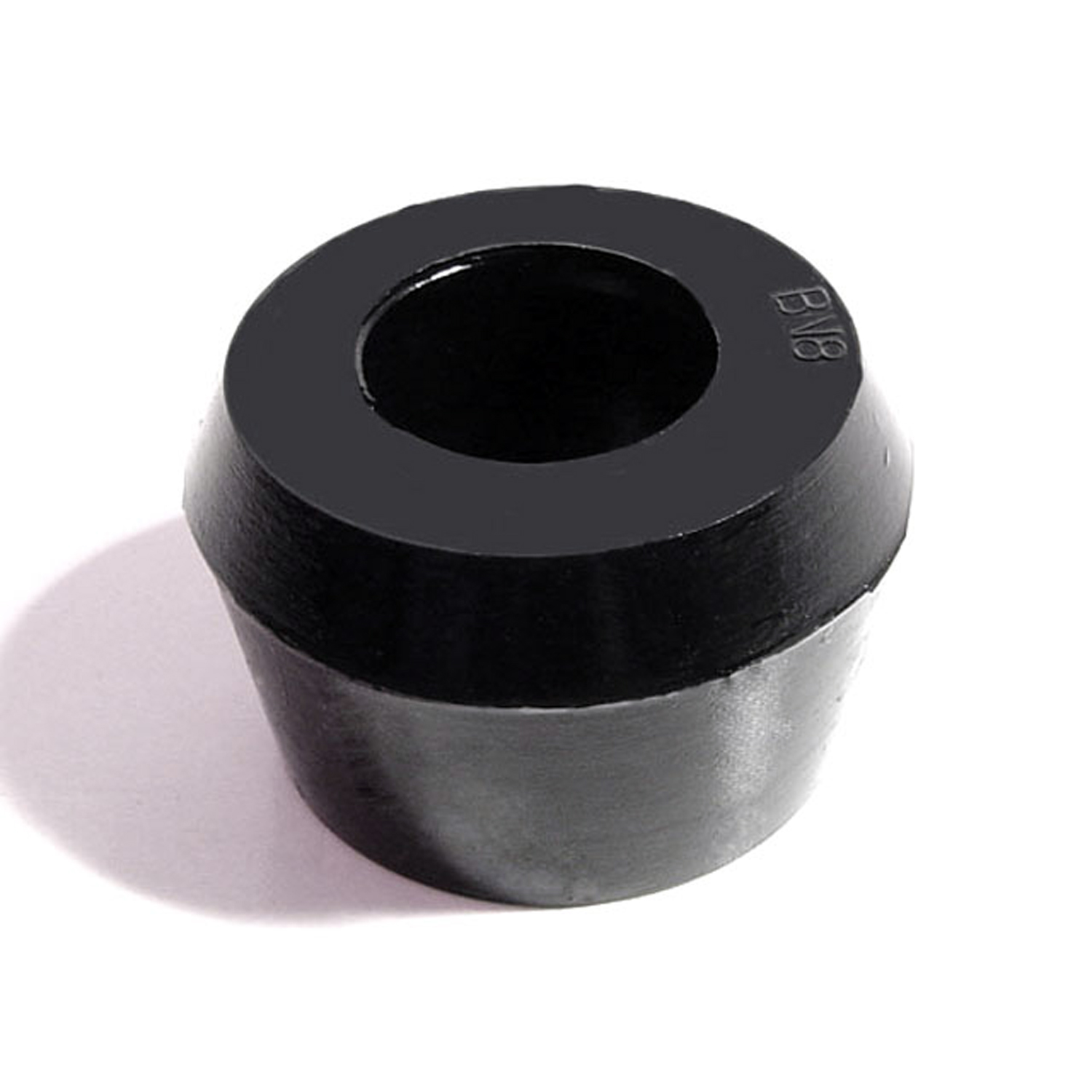 1957 Chrysler 300 Shock Absorber Grommet. 1-1/4" bottom O.D-BN 8Shock Absorber Grommet. 1-1/4" bottom O.D., 1" high, with 3/4" I.D. Each
1957 Chrysler 300 Shock Absorber Grommet. 1-1/4" bottom O.D-BN 8Shock Absorber Grommet. 1-1/4" bottom O.D., 1" high, with 3/4" I.D. Each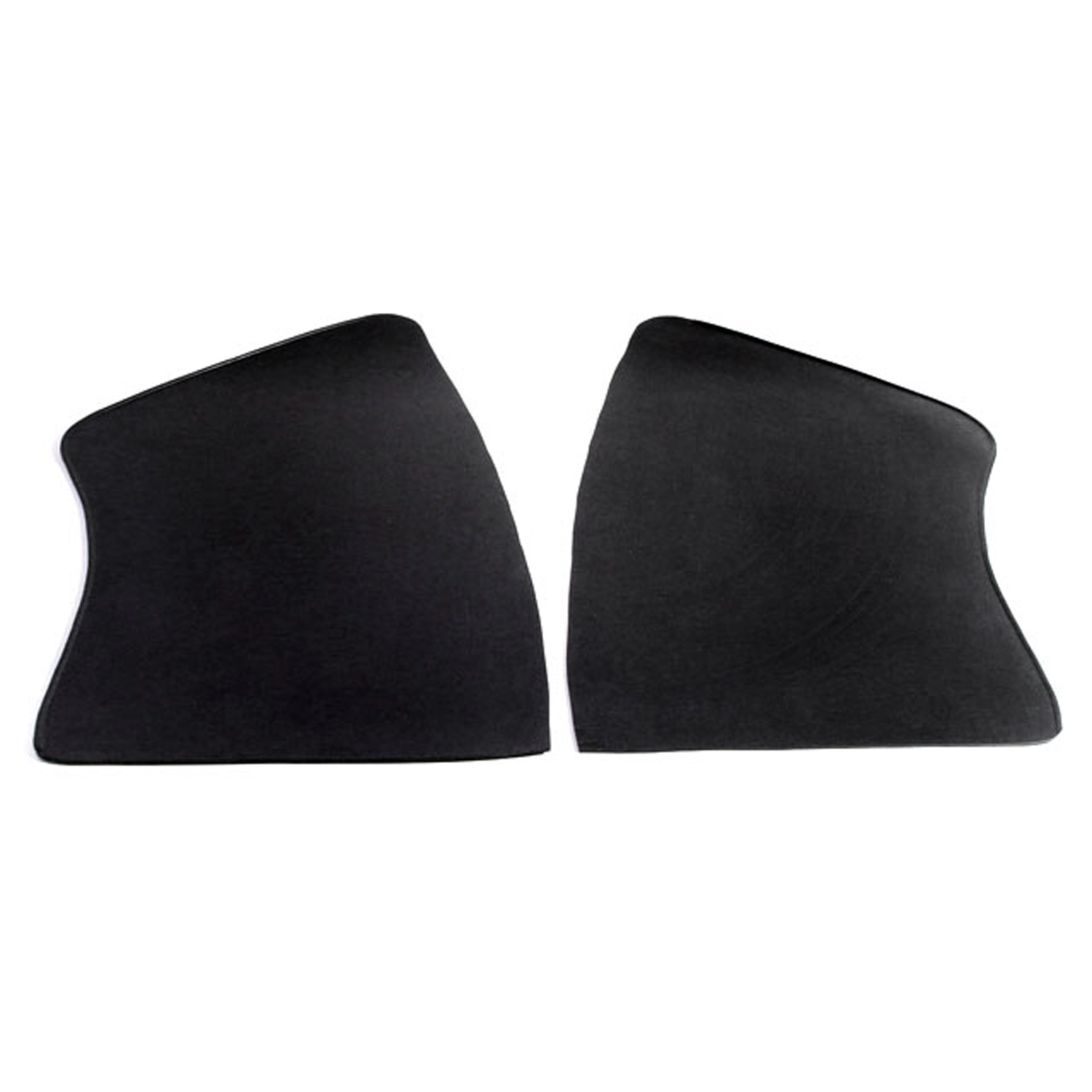 1957 Chrysler 300 Gravel Shields. Molded flat without metal backing plates-FS 31Gravel Shields. Molded flat without metal backing plates. Apply with contact cement. 18" long X 9-3/4" wide at bottom. Pair
1957 Chrysler 300 Gravel Shields. Molded flat without metal backing plates-FS 31Gravel Shields. Molded flat without metal backing plates. Apply with contact cement. 18" long X 9-3/4" wide at bottom. Pair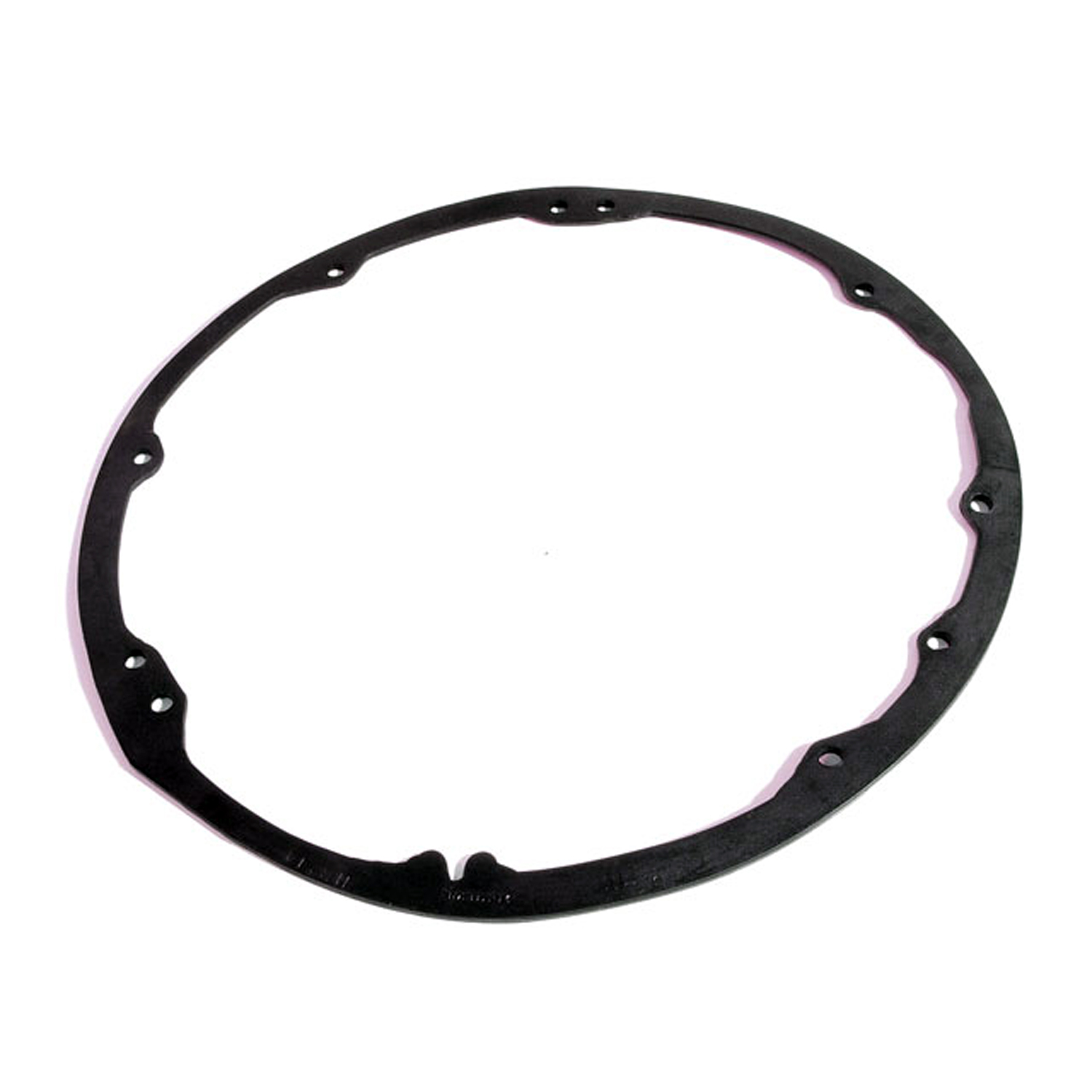 1957 Chrysler 300 Headlight Ring Seal. 8-3/8" O.D., 7-3/4" I.D. Pair-HR 14Headlight Ring Seal. 8-3/8" O.D., 7-3/4" I.D. Pair
1957 Chrysler 300 Headlight Ring Seal. 8-3/8" O.D., 7-3/4" I.D. Pair-HR 14Headlight Ring Seal. 8-3/8" O.D., 7-3/4" I.D. Pair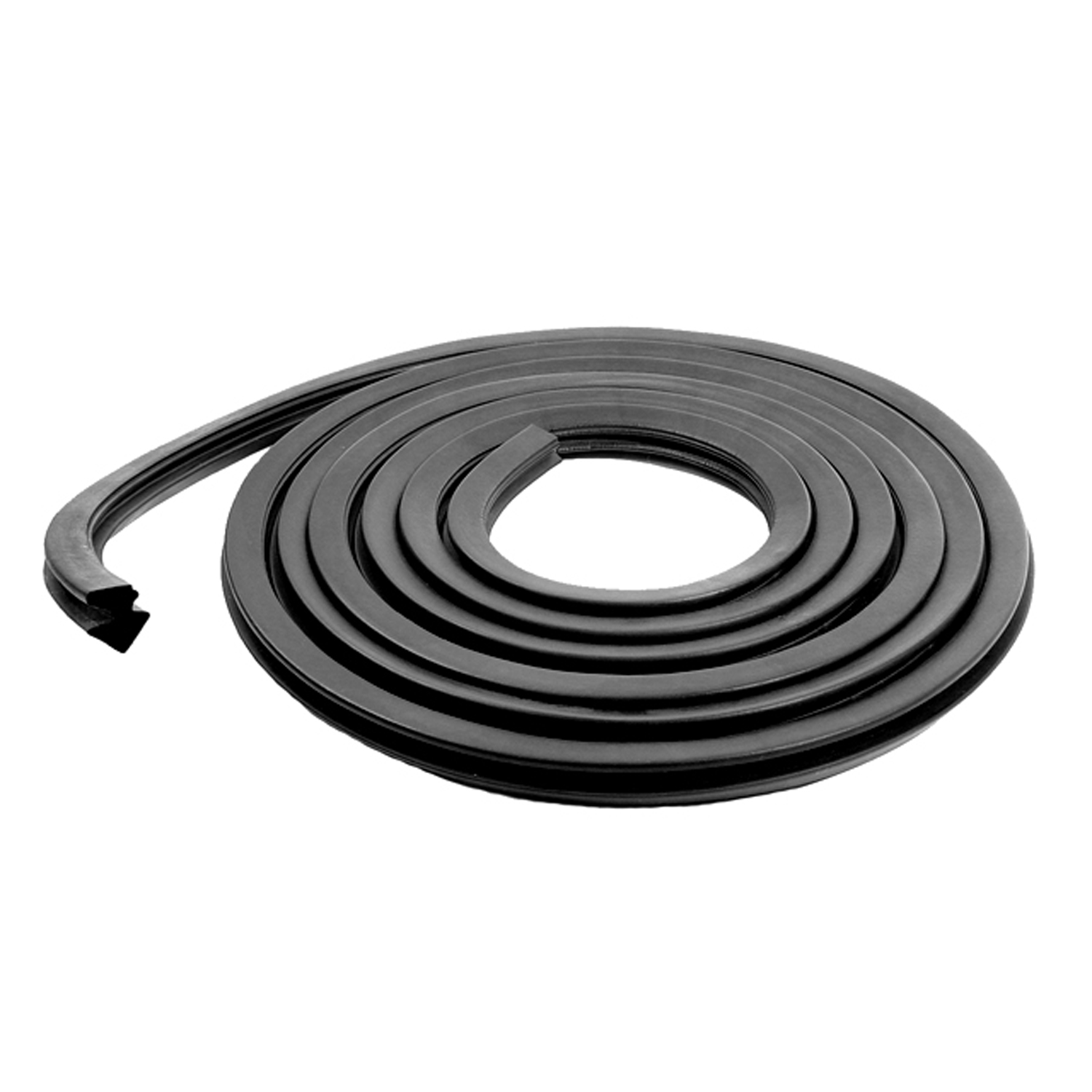 1957 Chrysler 300 Trunk Seal. Each-TK 64-17Trunk Seal. Each
1957 Chrysler 300 Trunk Seal. Each-TK 64-17Trunk Seal. Each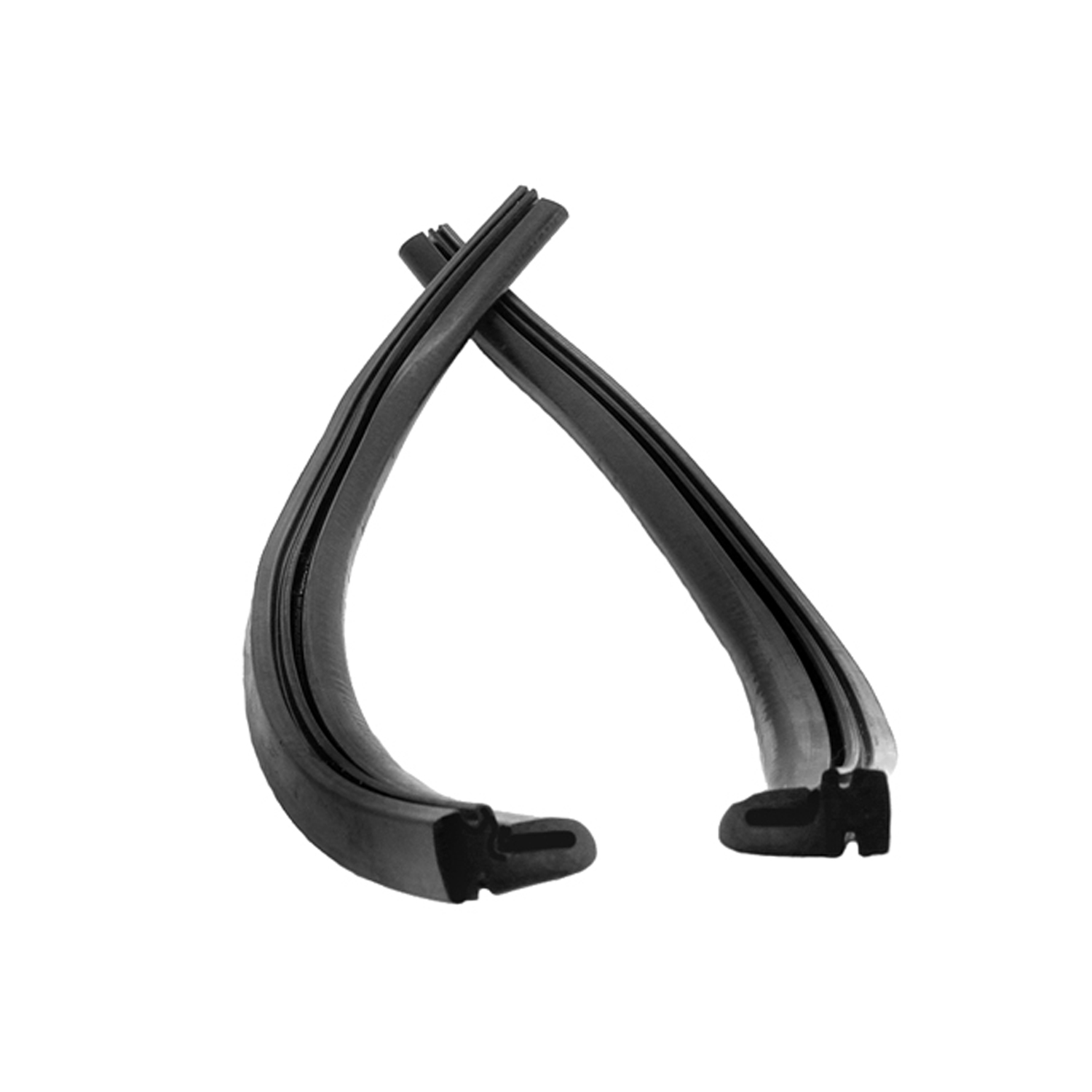 1957 Chrysler 300 Rear Roll-up Window Seals, for Hardtops and Convertibles-VS 7Rear Roll-up Window Seals, for Hardtops and Convertibles. For leading edge of rear quarter windows. Two pieces, 17-3/4" long. Pair
1957 Chrysler 300 Rear Roll-up Window Seals, for Hardtops and Convertibles-VS 7Rear Roll-up Window Seals, for Hardtops and Convertibles. For leading edge of rear quarter windows. Two pieces, 17-3/4" long. Pair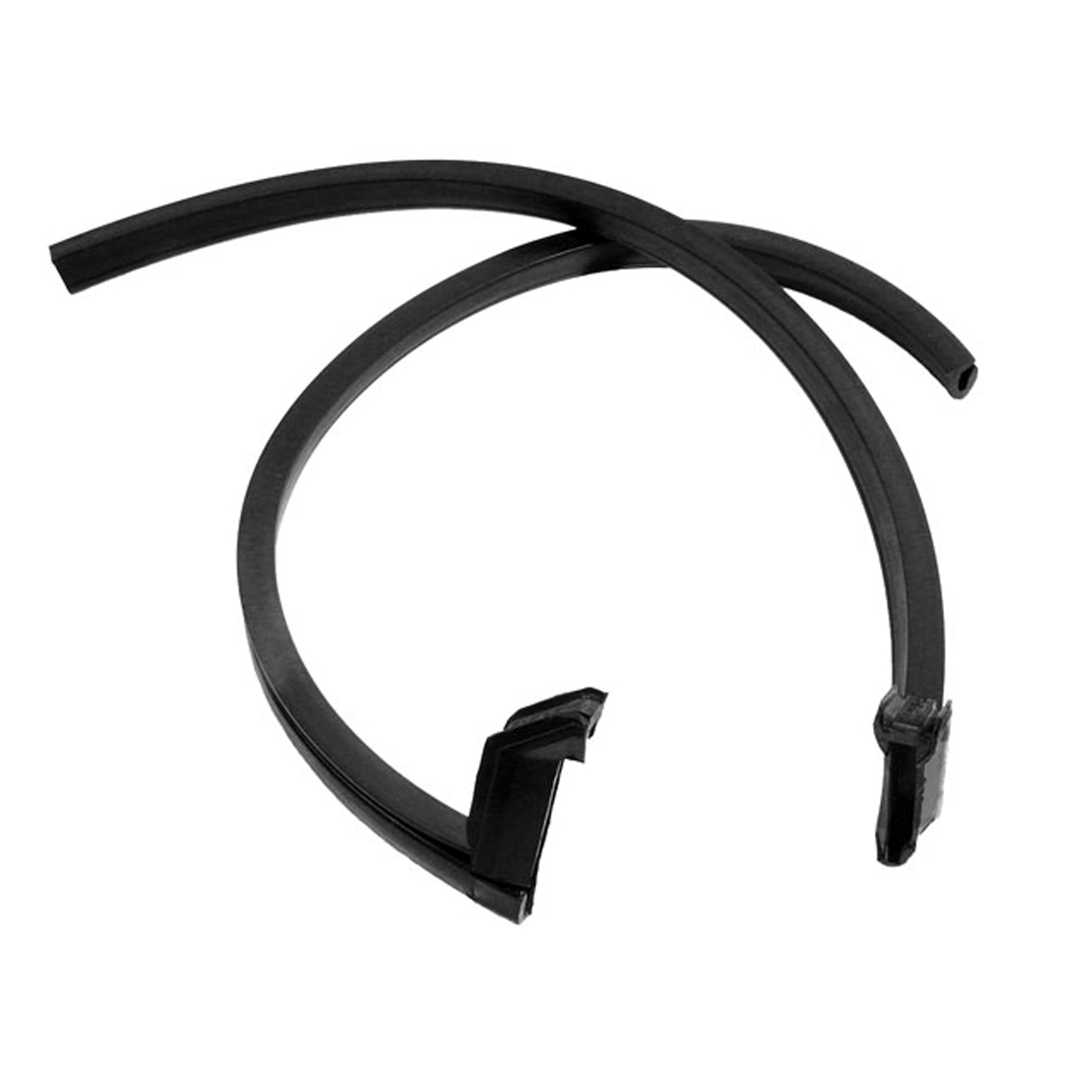 1957 Chrysler 300 Rear Roll-Up Window Seals-VS 7-GRear Roll-Up Window Seals. For leading edge of rear quarter window. Made with molded ends. 18-1/2" long. Pair R&L
1957 Chrysler 300 Rear Roll-Up Window Seals-VS 7-GRear Roll-Up Window Seals. For leading edge of rear quarter window. Made with molded ends. 18-1/2" long. Pair R&L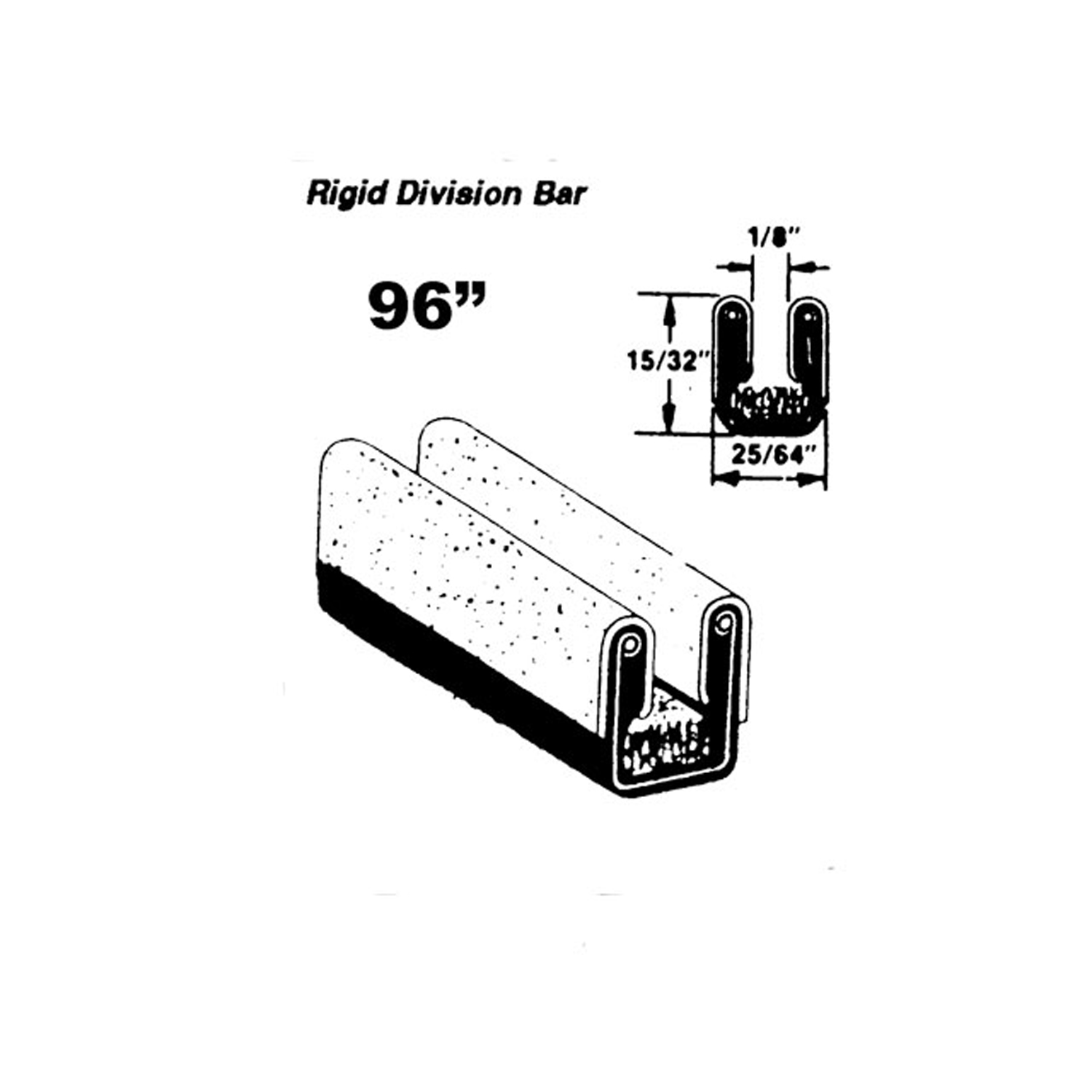 1957 Chrysler 300 Rigid division-bar run channel-WC 31-96Rigid division-bar run channel. Made with very soft felt lining. Used on front and rear door side windows. 96 in. long. Each. NOTE: $20 special shipping charge applies for domestic orders. Call or email for overseas shipping costs. Part can be sectioned in two or three equal lengths to reduce overseas shipping costs.
1957 Chrysler 300 Rigid division-bar run channel-WC 31-96Rigid division-bar run channel. Made with very soft felt lining. Used on front and rear door side windows. 96 in. long. Each. NOTE: $20 special shipping charge applies for domestic orders. Call or email for overseas shipping costs. Part can be sectioned in two or three equal lengths to reduce overseas shipping costs.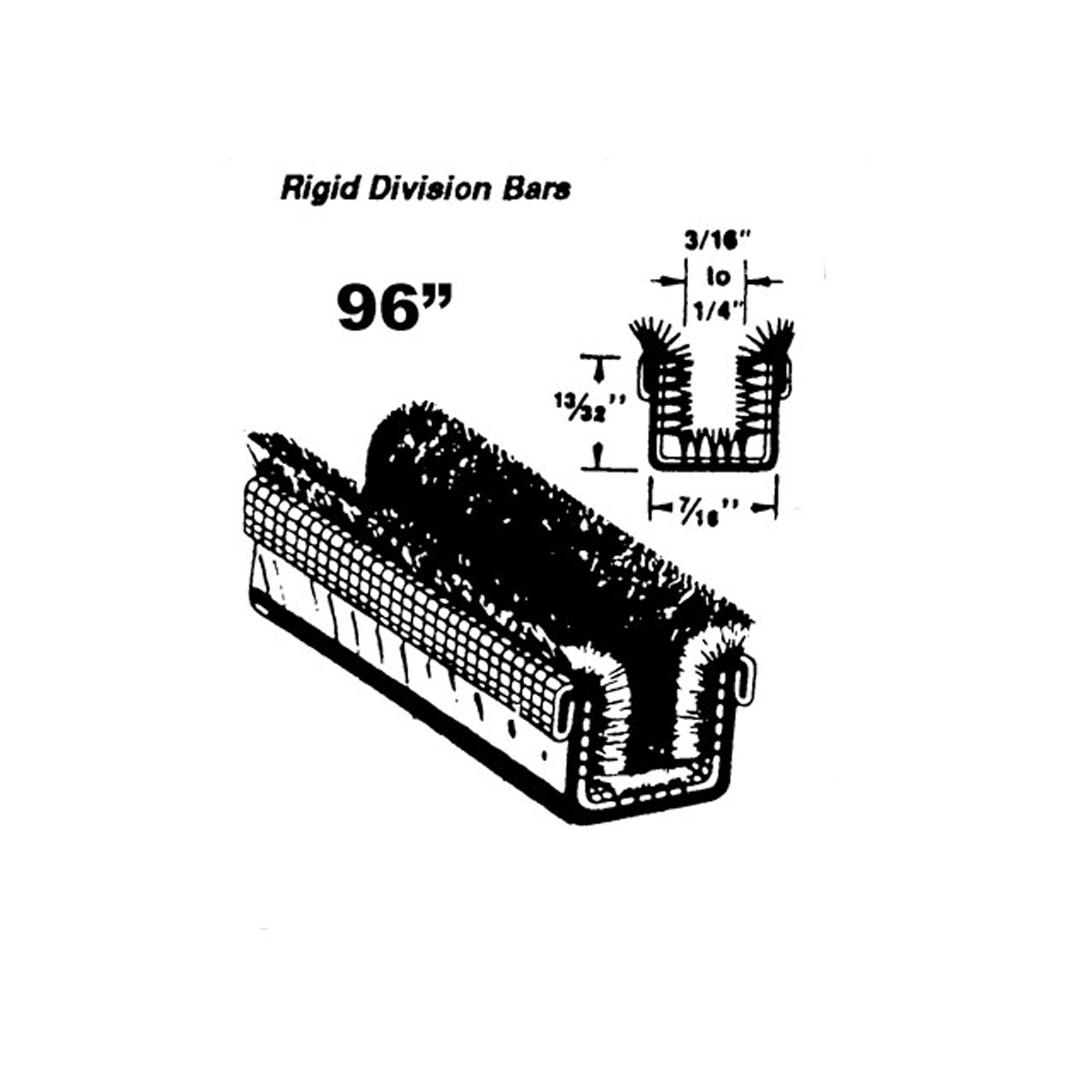 1957 Chrysler 300 Rigid division-bar channel. Unbeaded. 96 in. long. Each-WC 41-96Rigid division-bar channel. Unbeaded. 96 in. long. Each. NOTE: $20 special shipping charge applies for domestic orders. Call or email for overseas shipping costs. Part can be sectioned in two or three equal lengths to reduce overseas shipping costs.
1957 Chrysler 300 Rigid division-bar channel. Unbeaded. 96 in. long. Each-WC 41-96Rigid division-bar channel. Unbeaded. 96 in. long. Each. NOTE: $20 special shipping charge applies for domestic orders. Call or email for overseas shipping costs. Part can be sectioned in two or three equal lengths to reduce overseas shipping costs.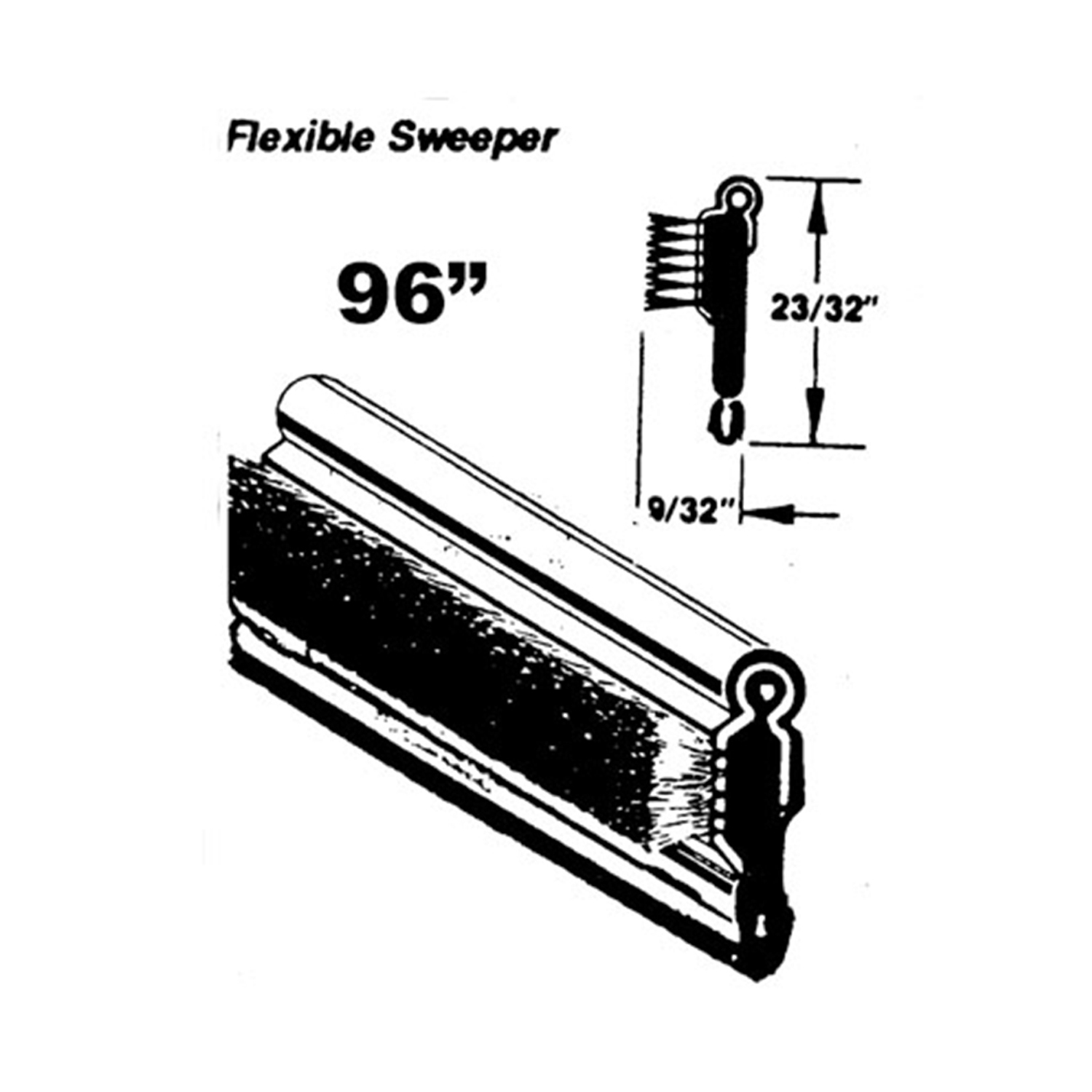 1957 Chrysler 300 Flexible window sweeper. Made with stainless steel bead-WC 4-96Flexible window sweeper. Made with stainless steel bead. 96 in. long. Each. NOTE: $20 special shipping charge applies for domestic orders. Call or email for overseas shipping costs. Part can be sectioned in two or three equal lengths to reduce overseas shipping costs.
1957 Chrysler 300 Flexible window sweeper. Made with stainless steel bead-WC 4-96Flexible window sweeper. Made with stainless steel bead. 96 in. long. Each. NOTE: $20 special shipping charge applies for domestic orders. Call or email for overseas shipping costs. Part can be sectioned in two or three equal lengths to reduce overseas shipping costs.Why Choose Metro?
For over 100 years, Metro Moulded Parts has been the pinnacle of quality in classic car restoration parts. Our commitment to precision and authenticity in every component ensures a perfect fit and an OEM-level appearance.
- Expert Craftsmanship & Quality: Each part is a testament to our dedication to reliability and perfection, crafted from original designs and thoroughly tested.
- Advanced Technology: We use cutting-edge techniques to create flawless, long-lasting parts that surpass others in performance.
- SuperSoft Sponge – The Ultimate Door Seal: Not only are our door seals 30% softer than competitors', but they're also guaranteed to never leak. They effectively reduce wind and road noise, enhancing your classic car's comfort and driving experience.
- Proudly American: Our parts are a product of American craftsmanship, made in the USA with a spirit of excellence and heritage.
- Unrivaled Warranty: We back our products with a 30-year industry-leading warranty, a testament to our confidence in their quality.
Join us in preserving the legacy of classic cars with parts that are crafted for perfection, not just made.

